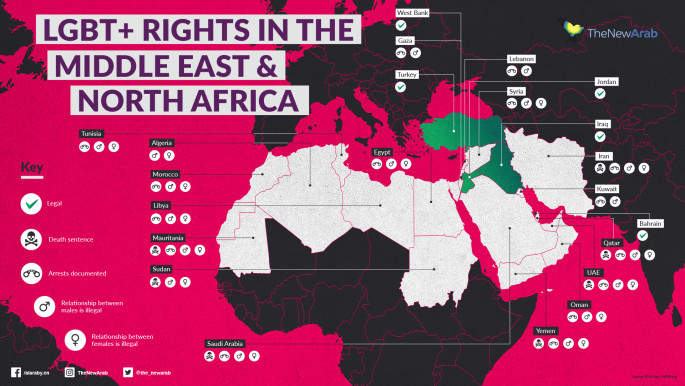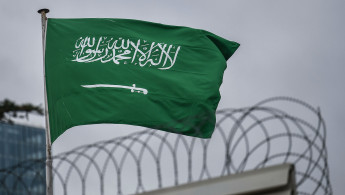Feminism, homosexuality placed on Saudi Arabia's extremism list despite 'reform drive'
Saudi Arabia’s counter-extremism department announced the move on Twitter, where it warned its citizens and nationals to remain cautious against such groups.
"Extremism in all its forms is a societal scourge. It is important to remain cautious,” the statement said, before warning against hardliners who break away from religion to affirm their views.
The accompanied 1-minute explained video then goes on to list what is perceived to be extreme, including atheism, feminism, homosexuality and pornography.
Saudi Arabia has continued to arbitrarily detain critics, including leading women's rights activists and their allies who have called for change in the ultraconservative kingdom.
Polishing the image
However, Friday’s move comes amid an initiative spearheaded by MbS himself to reform the ultraconservative kingdom, which has in recent months opened up its doors to the world in a bid to polish its image on the global stage.
 |
Most recently, Saudi Arabia launched a visa programme allowing holidaymakers from 49 countries to visit one of the world's most closed-off countries. For years, the only foreigners allowed into the country were mainly Muslim pilgrims and business people.
It also eased its strict dress code for foreign women, allowing them to go without the body-shrouding abaya robe that is still mandatory public wear for Saudi women.
Read more: What reform? The perils of the Saudi 'public decency' law
Prior to that, Saudi Arabia hosted K-pop superstars BTS who were the first non-Arab artists to perform at a stadium concert in the kingdom, though the move was slammed by rights organisations which dubbed the performance as an attempt to "whitewash" the kingdom's rights abuses.
"Mohammed bin Salman has created an entertainment sector and allowed women to travel and drive, but Saudi authorities have also locked away many of the country’s leading reformist thinkers and activists on his watch, some of whom called for these very changes," Michael Page, a deputy Middle East division director at HRW said.
"It's not real reform in Saudi Arabia if it takes place in a dystopia where rights activists are imprisoned and freedom of expression exists just for those who malign the dissidents."
Read more: Saudi Arabia's crackdown on critics continues despite 'reform drive'
The global fall-out over Saudi journalist Jamal Khashoggi's killing, who was murdered inside the kingdom’s consulate in Istanbul, rendered Prince Mohammed a pariah, testing alliances with Western powers and casting a shadow on his ambitious reform agenda aimed at weaning the kingdom off its dependence on oil.
Despite the kingdom's efforts, international criticism of Saudi Arabia’s human rights record, including the gruesome murder of Khashoggi and a crackdown on female activists, could put off foreign visitors, observers say.
Follow us on Twitter and Instagram to stay connected!





 Follow the Middle East's top stories in English at The New Arab on Google News
Follow the Middle East's top stories in English at The New Arab on Google News
![The UAE is widely suspected of arming the RSF militia [Getty]](/sites/default/files/styles/image_330x185/public/2024-11/GettyImages-472529908.jpg?h=69f2b9d0&itok=Yauw3YTG)
![Netanyahu furiously denounced the ICC [Getty]](/sites/default/files/styles/image_330x185/public/2024-11/GettyImages-2169352575.jpg?h=199d8c1f&itok=-vRiruf5)
![Both Hamas and the Palestinian Authority welcomed the ICC arrest warrants [Getty]](/sites/default/files/styles/image_330x185/public/2024-11/GettyImages-2178351173.jpg?h=199d8c1f&itok=TV858iVg)